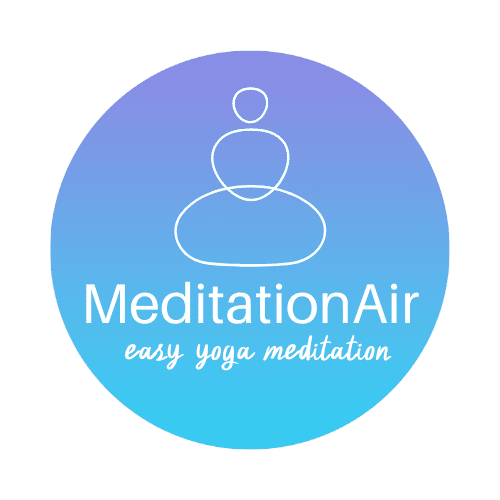
Choosing The Right Type Of Meditation: A Beginner’s Guide
Welcome to the world of meditation! As a beginner, you may be feeling overwhelmed by all the different types of meditation and unsure which one is right for you. Don’t worry – I’m here to help make this decision easier. In this article, I’ll provide an overview of the various forms of meditation so that you can confidently choose the practice that best fits your needs.
From classic mindfulness techniques to more modern approaches like breathwork, there are many paths to explore when it comes to finding inner peace and balance. But don’t let yourself get too caught up in comparing each approach – just focus on what speaks most deeply to you. With this guide as a starting point, I’m sure you will find the perfect type of meditation for your journey.
Finally, remember that while choosing the correct type of meditation is important, ultimately it’s about listening to your intuition and understanding what works best for you. So take your time exploring these options and have fun discovering which form resonates with you most!
Types Of Meditation
When it comes to meditation, there are many different types available. It can be hard to know which type is right for you as a beginner, so let’s explore the five main methods: mindfulness meditation, transcendental meditation, guided meditation, breathwork meditation and zazen meditation.
Mindfulness Meditation encourages us to focus on our thoughts and feelings in a non-judgmental way. By allowing ourselves to observe without having any expectations or preconceived ideas about what we should experience. Transcendental Meditation is an easy technique that helps us reach deep levels of relaxation by repeating mantras silently. Guided Meditation uses verbal instructions from an instructor or recording to help bring your attention inward and allow yourself to relax deeply into the present moment.
Breathwork Meditation focuses on tuning in with the flow of your own breathing while meditating. Finally, Zazen Meditation is an ancient practice that involves focusing on one’s posture while sitting quietly in stillness. Now that we’ve explored some of the different types of meditation available, let’s look at some of the benefits they offer.
Benefits Of Meditation
The benefits of meditation are plentiful and profound. Practicing regularly can bring you mental clarity, stress relief, improved concentration, emotional balance, and physical relaxation. Many people find that meditating helps them to slow down their busy lives and become more mindful of the present moment. It is also a great way to improve your overall health and well-being.
Meditation has been shown to reduce anxiety levels by calming the body and mind. By taking time out from our hectic schedules, we give ourselves an opportunity to relax and focus on what matters most in life – our wellbeing. Additionally, studies have found that regular practice of meditation can help lower blood pressure, improve sleep quality, increase energy levels and enhance creativity.
When practiced correctly, meditation can be incredibly beneficial for both your mental and physical health. As a beginner it’s important to choose the type of meditation that best suits you; whether it be yoga or mindfulness based practices such as Vipassana or Transcendental Meditation (TM). Different forms will suit different individuals depending on their particular needs – so take some time to explore each one before making a decision about which type works best for you!
Choosing The Right Meditation For You

Choosing the right type of meditation for you as a beginner can be daunting. There are many different types of meditation and it is important to understand your needs before deciding which one will work best for you. Luckily, there are some general guidelines that can help make this process easier.
First of all, consider what kind of results you want from your practice. Are you looking to relax? Enhance creativity? Improve concentration or focus? Each type of meditation has its own benefits, so think about what would most benefit you right now. Once you have an idea of what it is that you’re looking for, then look into each type in more detail, taking time to read reviews and research techniques. Make sure to ask questions if something doesn’t quite make sense – there are plenty of online resources available to help with this!
An experienced meditation teacher can also be very helpful in guiding you towards the ideal practice for your goals. They may even recommend particular practices depending on your lifestyle and preferences. Additionally, they can provide support during times when things become difficult or challenging – always valuable when embarking on any journey! With these tips in mind, finding the perfect meditation guide should be simple enough for any beginner looking to get started with their practice!
Conclusion
As a meditation expert, I have seen first-hand the power of this practice to transform lives. Through my own journey and by working with many people over the years, I am confident that meditation is one of the most powerful tools for self-care and healing we can use.
When it comes to choosing the right type of meditation for you, there are so many options available – from mindfulness meditation to Vedic chanting or guided imagery. There is no single right answer; instead, choose whatever resonates best with your individual needs. The key is to find something that speaks to you on an emotional level and will become part of your daily routine.
Ultimately, it’s important to remember that meditation isn’t about perfection – it’s about showing up every day as if it were a beautiful dance between yourself and life itself. So why not give it a try? Let go of any expectations and just dive in; you may be surprised at what awaits you!

